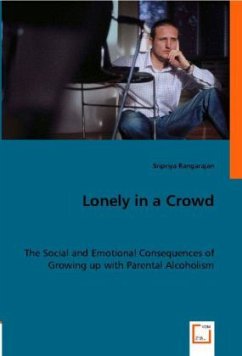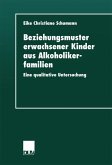One of the more serious consequences of growing up with parental alcoholism is learning dysfunctional coping behaviors, which have implications for the quality of one's relationships in adulthood (Fox & Gilbert, 1994). Deficiencies in interpersonal and social relationships increase individuals' risk for becoming chronically lonely. The more pathological consequences of loneliness are to be found among those adults who develop personality and adaptation disorders, such as alcohol abuse, loss of self-esteem, extreme forms of anxiety, powerlessness, and stress (de Jong Gierveld, 1998). Based on the idea that chronic feelings of loneliness may have roots in early childhood experiences, a mediational model of parental alcoholism effects on loneliness among adult children of alcoholics (ACOAs) using Attachment theory (Bowlby, 1969) as the theoretical framework was proposed, tested, and validated in the current study. The study provided support for the idea that resilience models of ACOA functioning based on individual differences perspectives of parental alcoholism effects offer greater understanding of the ACOA experience than categorical models that emphasize pathology and dysfunction.
Bitte wählen Sie Ihr Anliegen aus.
Rechnungen
Retourenschein anfordern
Bestellstatus
Storno








